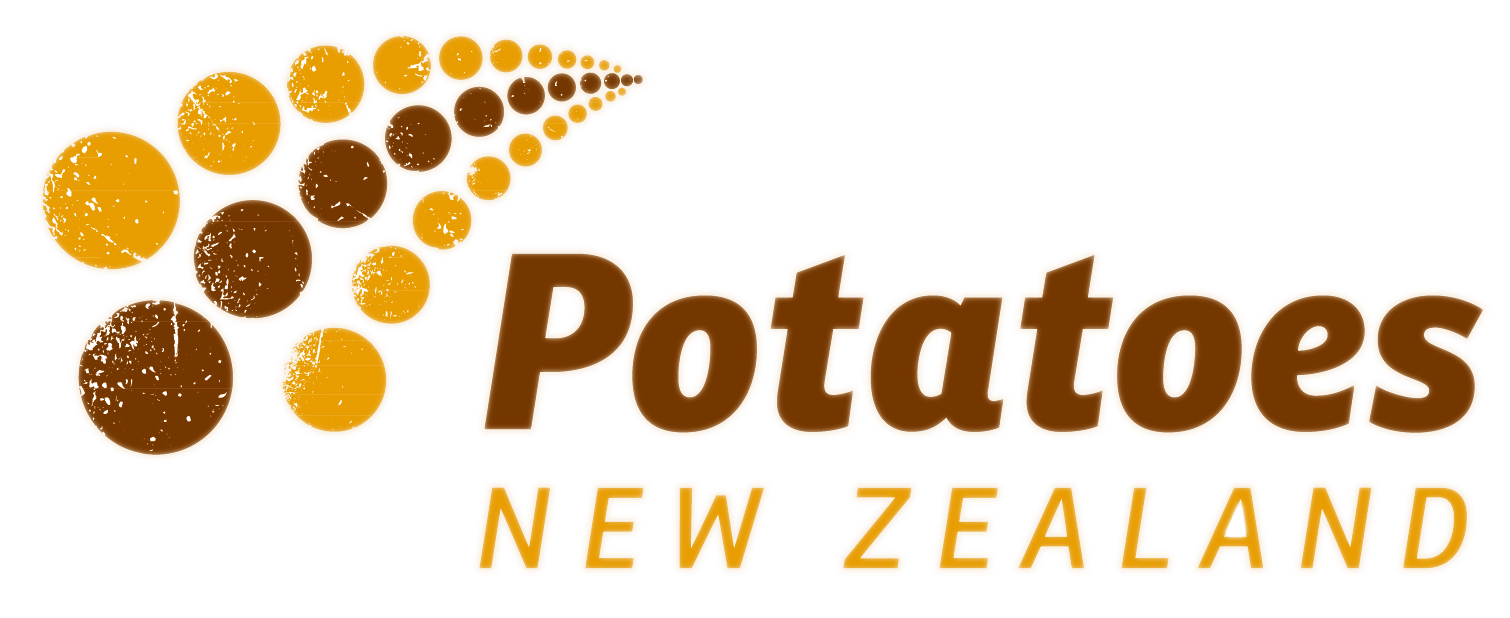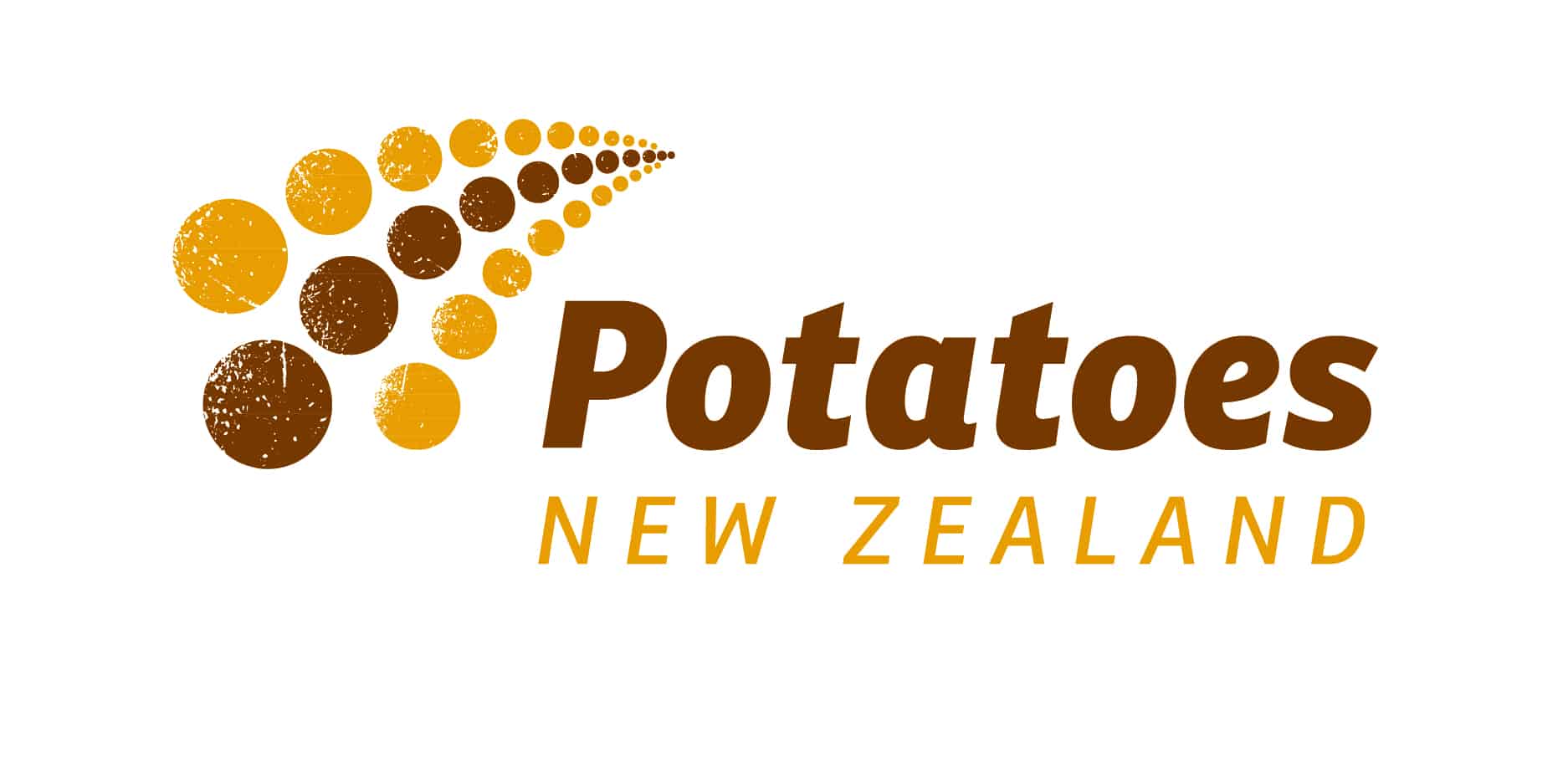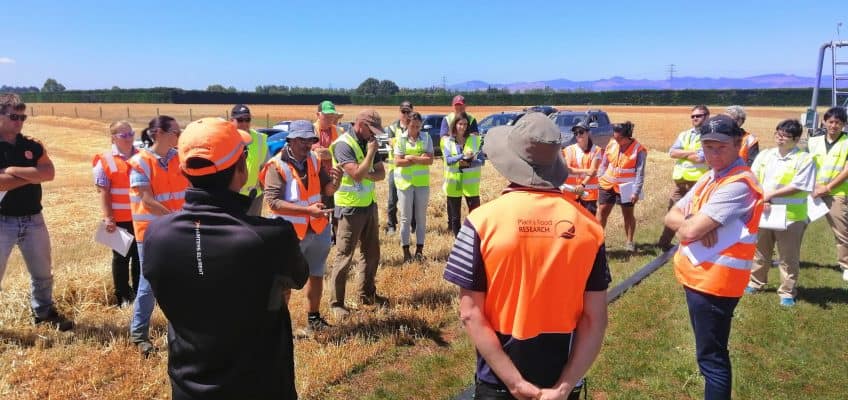PNZ Field Walks 2020 built on the 2019 event, where our team toured the 3 growing regions alongside the local R&D project leaders, to update agronomists and growers on our projects and other developments for industry.
Locations in Canterbury, Pukekohe and Manawatu were a combination of PFR trial sites and farm paddocks.
Three themes of Pest & Disease, Farm Management tools and Education covered; Emissions & Nitrates, Maximising Irrigation, Potato Breeding, TPP research, Powdery Scab, PMTV, Inspector training & trial plots, FEPs, and UK advice on SPOT (Strategic Potato) Farms.
PNZ see this as a fantastic opportunity not only for first hand R&D updates and demonstrations but also open discourse and peer to peer learning for rural professionals, scientists and growers.
We appreciated having the added expertise of UK agronomists, John Sarup and Mike Inglis, both of whom have been brought over for contract work for PNZ and Wilcox respectively.
Emissions Taskforce and Project
Emissions and nitrate leaching updates from PNZ CEO Chris Claridge allowed growers and scientists an opportunity to see how far the taskforce has come and that the work will eventually broaden to benefit all vegetable groups. PNZ are committing to zero net emissions by 2050, in line with the government’s objectives and He Waka Eke Noa.
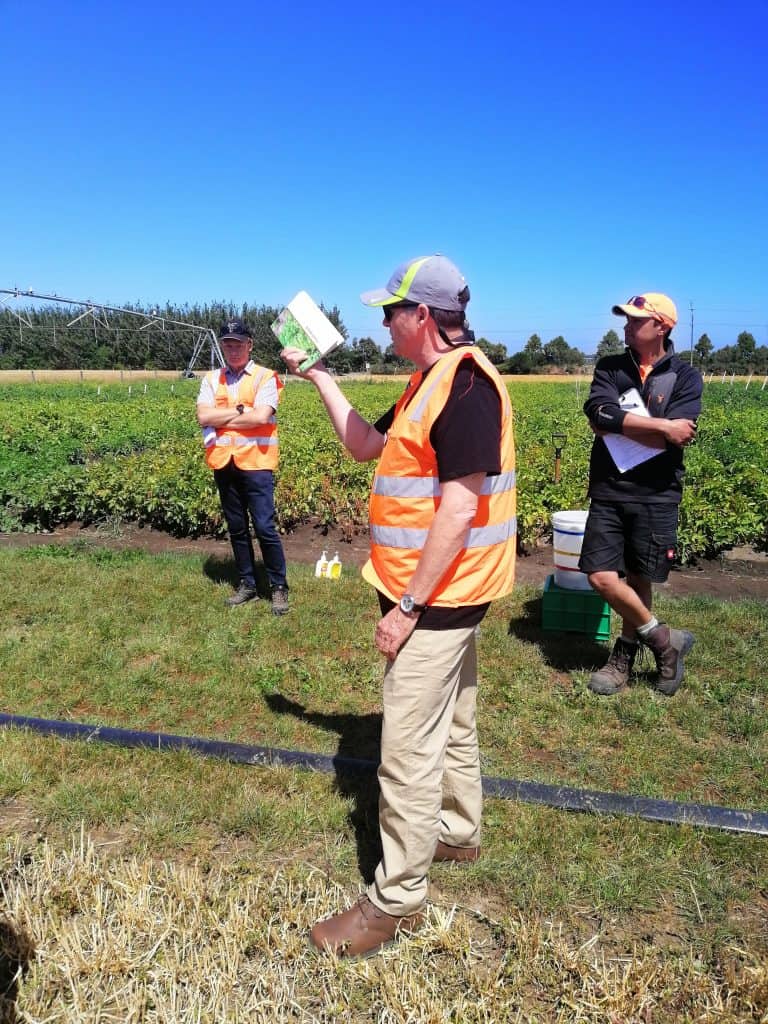
Maximising Irrigation
Integral to nitrate leaching this presentation tied in perfectly with Dirk Wallace’s demonstrating the simple effects of water application volumes and potential run-off scenarios.
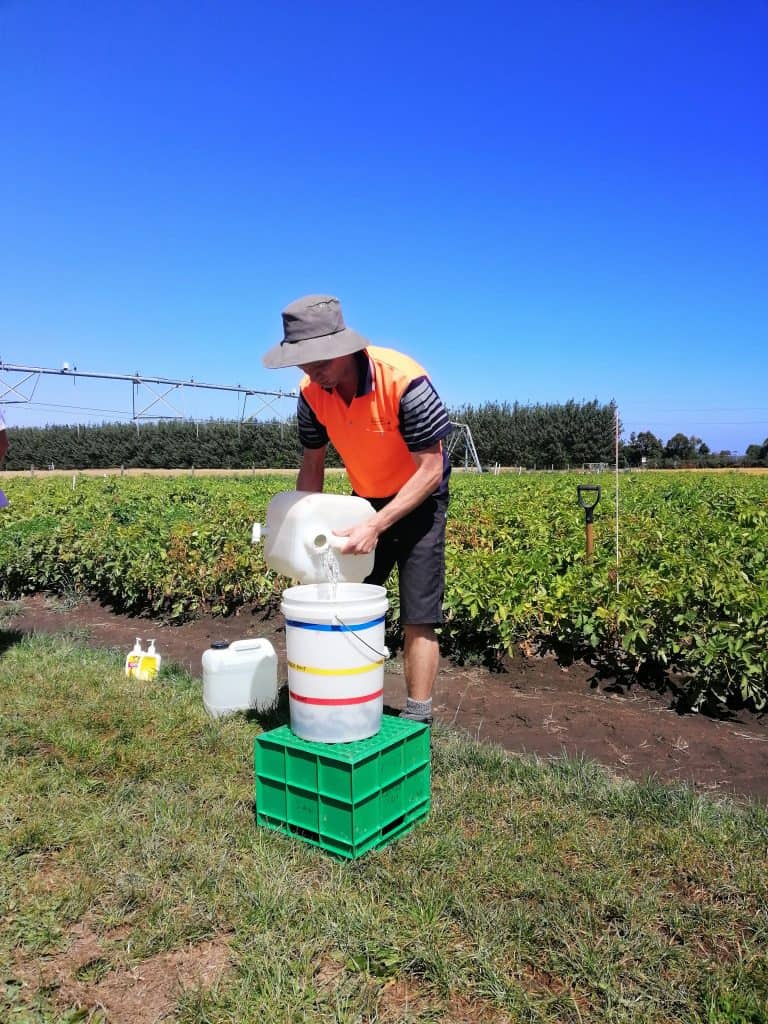
Potato Breeding
Plant & Food Research have run an active potato breeding programme for over 60 years, with the North and South Islands serviced out of Pukekohe and Lincoln, respectively. Programme Lead Steve Lewthwaite said the work focusses on delivering improved potato cultivars adapted to the New Zealand environment, with an eye on genotypes that might also meet international niches. Targets include improving yield, quality, and production under reduced inputs, whilst also exploring opportunities for higher value innovative products. There is heavy selection for increased tolerance to diseases significant to New Zealand, such as Zebra Chip. This breeding effort is underpinned by an integrated science research programme developing genetics for a future where sustainable growing systems are compulsory, access to healthy food is a priority and niche products are a premium.
Tomato Potato Psyllid
Years of work underpins the TPP project and Jessica Dohmen-Vereijssen of PFR is considered a world expert and always presents a fascinating technical update. Camera work using drones over fields has been affected by high winds and scattered cloud making disease identification challenging but could be useful in tuber grading processes.
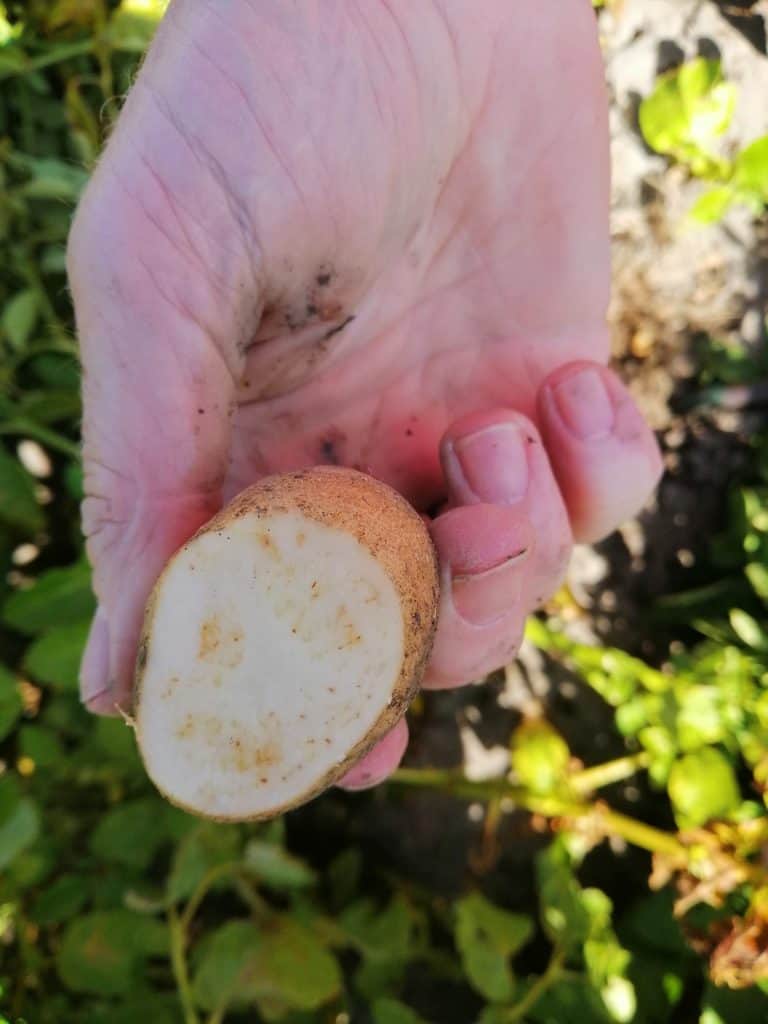
Powdery Scab Suppressive Soils
Peter Wright elucidated on how soil types and soil chemistry may create disease suppression. The overall takeaway from his talk was the relevance of the soil microbiome; much like the human gut, soil requires good bacteria to be present. The exciting thing about this project is that it can assist farmers with environmental sustainability, eco-friendly values and pesticide residue reduction, which is becoming a demand from consumers.
Key results of Powdery Scab Suppressive Soils Research so far:
• Some of the soils suppressed Spongospora diseases
• Soil heat treatment increased powdery scab, indicating disease suppression was associated with the soil microbial populations
• Powdery scab suppressive soils had different populations of specific bacteria than non-suppressive soils
• Some suppressive soils had very high natural amounts of manganese
A third greenhouse experiment (2019) measured effects of different natural manganese levels in field soils on Spongospora diseases, and determined if soil and foliar applications of manganese affect these diseases.
We also heard brief updates from Iain Kirkwood on FEP requirements, which will become mandatory, PMTV survey results and the latest training initiatives for seed inspectors.
PNZ will be considering the possibility of engaging a farm in each region to become a trial site for new technical tools and farm managements techniques as per the UK programmes (SPOT Farms), as this will provide an ongoing location for further farmer-farmer knowledge transfer.
We can see from attendance at Field Walks that agronomists are the trusted advisors for farmers and we understand they then share the info, but we’re keen to see growers engage with these learning and update opportunities as well.
You can download the 2020 FIELD WALKS HANDBOOK here along with other useful R&D updates via handbooks from recent PNZ events.
